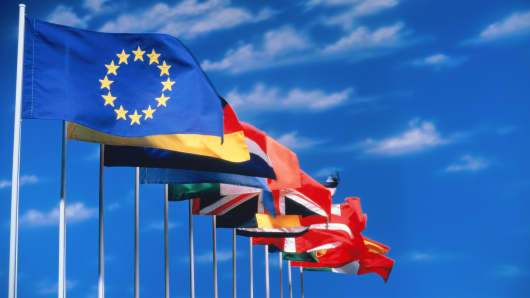Mariano Rajoy has called on Germany and other creditor countries in the euro zone to do more to stimulate growth, arguing that a switch to a more expansionary policy would boost economic recovery across the single currency area.
"I think that in this moment, when there is a need for growth, those who are able to implement growth policies should do it," the Spanish prime minister told the Financial Times in an interview. "What is clear is that you cannot ask Spain to adopt expansionary policies at this time. But those countries that can, should."
(Read More: Why Euro Zone Crisis May Get Worse This Year)
Launching a vigorous defense of his own economic crisis management, Mr Rajoy also insisted that Spain was right not to request aid from the European Central Bank last year – and ruled out any such move for the time being.
Facing soaring unemployment and a second year of recession, Spain has come under strong pressure from investors to trigger the ECB's outright monetary transactions program. This would allow the bank to buy Spanish bonds in the secondary market, driving down the cost of borrowing for Madrid and, by extension, the country's private sector.
Mr Rajoy suggested he would only consider OMT in the event of fresh market turmoil. "The option is there, and it would be absurd to rule it out for all time," the prime minister said. "But at this point we believe that it is not necessary."
Sounding a defiant note, Mr Rajoy added that his stance on ECB intervention was not only the "settled view" within his government, but also had the support of "most sectors of the economy" as well as Spanish public opinion.
The Spanish government has been sharply criticized at home and abroad for its response to the country's economic crisis, and in particular to last year's turmoil in the banking sector. In June, Madrid was forced to seek a €100 billion bailout from the EU for its troubled lenders – despite repeated assurances from senior Spanish officials that the sector was in good health.


